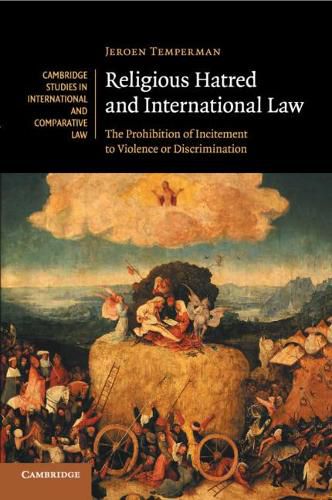Readings Newsletter
Become a Readings Member to make your shopping experience even easier.
Sign in or sign up for free!
You’re not far away from qualifying for FREE standard shipping within Australia
You’ve qualified for FREE standard shipping within Australia
The cart is loading…






The UN International Covenant on Civil and Political Rights obliges state parties to prohibit any advocacy of religious hatred that constitutes incitement to discrimination or violence. This book traces the origins of this provision and proposes an actus reus for this offence. The question of whether hateful incitement is a prohibition per se or also encapsulates a fundamental ‘right to be protected against incitement’ is extensively debated. Also addressed is the question of how to judge incitement. Is mens rea required to convict someone of advocating hatred, and if so, for what degree of intent? This analysis also includes the paramount question if and to what extent content and/or context factors ought to be decisive. The author extensively engages with comparative domestic law and compares the workings of the UN Human Rights Committee with those of the UN Committee on the Elimination of Racial Discrimination and the European Court of Human Rights.
$9.00 standard shipping within Australia
FREE standard shipping within Australia for orders over $100.00
Express & International shipping calculated at checkout
The UN International Covenant on Civil and Political Rights obliges state parties to prohibit any advocacy of religious hatred that constitutes incitement to discrimination or violence. This book traces the origins of this provision and proposes an actus reus for this offence. The question of whether hateful incitement is a prohibition per se or also encapsulates a fundamental ‘right to be protected against incitement’ is extensively debated. Also addressed is the question of how to judge incitement. Is mens rea required to convict someone of advocating hatred, and if so, for what degree of intent? This analysis also includes the paramount question if and to what extent content and/or context factors ought to be decisive. The author extensively engages with comparative domestic law and compares the workings of the UN Human Rights Committee with those of the UN Committee on the Elimination of Racial Discrimination and the European Court of Human Rights.